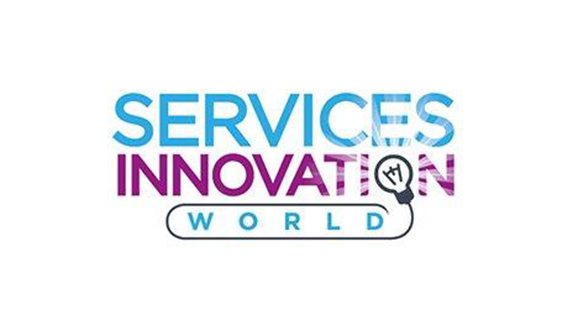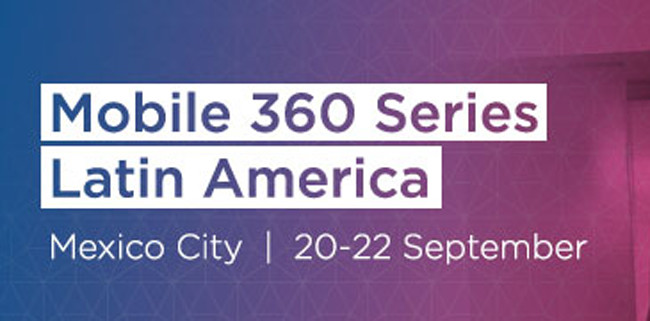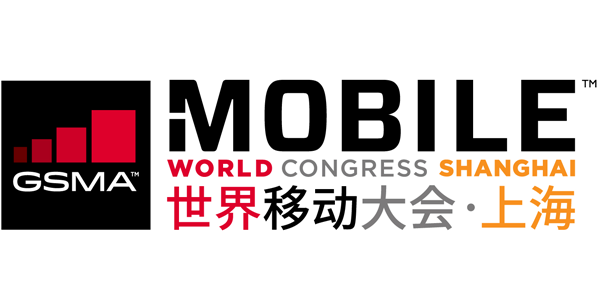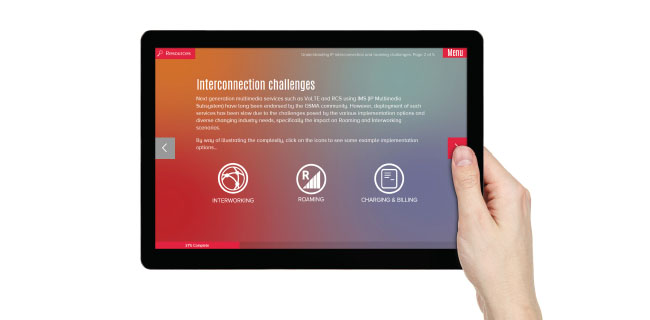






More Information
RCS Business Messaging provides brands with the opportunity to increase their engagement with customers by making use of business feature-rich mobile messaging using chatbots and artificial intelligence (AI).
User adoption is simple and straightforward. There is no need to download multiple apps as users gain direct access to a range of brands and services from within the messaging app itself, allowing them to engage with virtual assistants to book flights, buy clothes, make restaurant reservations and more.
Frequently Asked Questions
Does interoperability limit the scope of operator differentiation?
No. SMS and MMS are good examples of successful service enablers that have thrived based on interoperability while encouraging a proliferation of differentiated value-added services. RCS provides core functionality, enabling app development and differentiation, based on underlying interoperability and compatibility, such as instant messaging. Interoperability ensures that core RCS service features will operate seamlessly between users, whichever operator they belong to and whatever mobile phone they have.
How do you create a unique proposition for end-users?
The compelling strapline for RCS is: ‘It’s just there, and it just works’. RCS gives end-users the immediate opportunity to communicate with others in a variety of ways, without requiring installation, registration, etc. Furthermore, Rich Communications Services (RCS) boasts levels of security and QoS that only operators can provide and there will be no ‘closed community’ limitations. In other words, RCS will be available to all mobile operator subscribers, independent of handset and users will be made aware of an address book contact’s service capability. RCS provides end-users with a frictionless and trustworthy experience across networks and borders. Only mobile operators are capable of delivering such a service, and it is what today’s end-users have come to expect.
What infrastructure will operators need to deploy to take advantage of RCS?
RCS services are based on the IP-Multimedia Subsystem (IMS), as specified by the 3GPP and adopted by major industry standardisation bodies for mobile and fixed networks. Operators may implement their own IMS solution or can access the services of a hosted solution to provide a pre-IMS or partial-IMS implementation. The hosted solution may be a temporary or permanent solution for the operator.
Will RCS interconnect to Online Service Provider (OSP) apps such as Facebook Chat for example?
Example demonstrations from several vendors have shown that it is technically possible to achieve integrations between RCS and OSP apps. Such interconnects will be dependent on commercial agreements between operators and OSPs and will be based on similar terms and conditions as interconnect between RCS operators.
Can the RCS client be put on fixed devices such as IMS-registered IP phones and will these interwork with the mobile RCS clients?
An RCS client could be developed to work on IMS-registered IP phones and interworking would be possible if the networks are interconnected.
Aren’t the features of RCS inferior to Online Service Provider (OSP) app alternatives? How should operators position themselves to compete with them?
On the contrary, the current feature set, e.g. one-to-one and group chat, image and file-sharing of RCS, is competitive with most OSP services. Furthermore, RCS also offers the unique benefits of providing video, image and file share in-call, so that users do not have to switch apps to access these services. RCS also offers service capability discovery, which means that the user can be confident that if they see that a service is available, they can be sure that it will work. Operators can position their RCS services as easy to discover, install, set up and use and can offer a secure, reliable and private user experience.
Since WhatsApp, Viber, Line services etc. are already presented as IP-based apps, what is the added value of RCS?
The critical differentiator for RCS is that when natively integrated into the mobile phone or via a downloadable app, no intervention is needed by the end-user – ‘it’s just there’. Furthermore, only relevant and available services are offered to the user thanks to dynamic capability discovery – ‘it just works’.
What opportunities does an RCS deployment offer an operator?
The opportunity for the operator is to retain its relevance as the primary provider of personal communications services to its customers and reinvigorate its core communications products, by innovating and differentiating versus online service providers with ease of use, ubiquity, interoperability and privacy. New revenue-generating services can be developed on the RCS platform and will be discoverable in the right place, in the proper context.
How can operators monetise RCS-based services? Additional fees or data charging?
There are many ways in which RCS based services can be monetised: charging customers per event for certain services, bundling services into daily, weekly or monthly subscription packages or charging explicitly for data volumes consumed. In some cases, third-party service providers could be charged for the use of Rich Communications capabilities, e.g. video share or file share in the delivery of their specific services, such as in gaming apps or to enrich customer care services.
For an operator with strong on-net effect, Online Service Providers (OSPs) are not currently a significant threat and SMS price is already low, does it make sense to launch RCS at this moment? If they do so, isn’t this anticipating the loss of on-net effect?
RCS offers significant opportunities to enrich the consumer’s communications experience now, encouraging them to communicate more and helping to strengthen the mobile operator’s relationship with them. Maintaining the mobile operators’ relevance as the primary provider of communication services will become even more critical as competition shifts from the messaging market to the far more valuable voice market.
With the availability of high bandwidth, low latency, LTE networks, many more third parties could offer even more competitive mobile VoIP services. Operators need to act now to prepare themselves to compete with third-party service providers effectively.
What are the costs and timescales to implement RCS?
These are dependent on many factors, in particular, the current size and status of the operator’s network. For full deployment, there are a variety of architectural options that can be employed to achieve RCS deployment without significant upfront investments or complex network integrations.
Deployment of the first commercial RCS networks took less than nine months, with RCS Solutions taking as little as three months.
We can now confirm, given the ecosystem experience and knowledge acquired during these initial deployments, that future implementations have been much faster:
- LATAM region implemented six-country launches within five months with a hosted solution.
- Sprint, the second USA operator to launch RCS services, was live with a hosted solution within 12 weeks.
What is the market demand for this product? How will RCS compete with Online Service Providers (OSPs)?
The popularity of several OSP services best demonstrates the market demand. With the advent of all-IP networks and greater penetration of smartphones, demand for Richer Communications will grow. Yet, only operators can deliver quality, secure services whose scope is not
limited to a specific OEM or OS universe. Complementing this will be service capability, which will guarantee that end-users will not have a “trial and error” experience when attempting to communicate with address book contacts.
Who is the target audience for RCS?
Consumers who wish to stay in touch with friends and family, and capture and exchange rich media with them as events happen. The youth demographic is particularly attracted to the RCS proposition; and Business users who need to exchange multimedia documents and work collaboratively with colleagues.
How can the Future Networks team assist operators in deciding to commit to RCS?
Both operator and the GSMA’s members of the Future Networks team welcome the opportunity to assist other operators in their efforts to decide to commit to RCS. Through documentation, content, face-to-face sessions, workshops, C-level briefings, live demos and other methods, the Future Networks team is ready to inform and convince.
Operators considering RCS should not hesitate to contact the Future Networks team, and we look forward to working with you.
RCS Business Messaging is an opportunity for operators to reshape and revitalise their messaging services and play a central role in the future of IP-based messaging.
RCS Business Messaging provides the opportunity for operators to grow revenue by enhancing their business to offer new capabilities and share in the revenue generated by new business paradigms such as AI, chatbots and in-chat search.
The following nine principles are essential to ensure trust in RCS Business Messaging and secure its place as the communications platform of choice.
- Openness
- Innovation
- Reach
- Quality
- Protection
- Reward
- Value
- Transparency
- Privacy
You might also like
GSMA ALL-IP BUSINESS GUIDE ADDS NEW FEATURES
Monday 19 September, 2016 | Digest | Latest News | RCS Digest
By Steve Wyre, Senior Marketing Manager, GSMA The GSMA’s Network 2020 programme introduced a new service late last year called The All-IP Business Guide (www.gsma-all-ip-business-guide.com) that’s designed to give mobile operators detailed information and guidance on ...
David O’Byrne at Service Innovation World conference
Friday 16 September, 2016 | Digest | Latest News | RCS Digest
“Facilitating global discussions on the crucial industry developments propelling interoperability foward Three of our leading industry conferences dedicated to service innovation, monetisation and diversification have just come together under one roof! With the ...
Exploring the advancement of 5G and RCS at Mobile 360 LatAm 2016
Thursday 8 September, 2016 | 5G Digest | Digest | Latest News | RCS Digest
By Jill Cooper, Marketing Director, GSMA With one of the fastest climbing rates of smartphone ownership, and the mobile industry accounting for between 4 and 5% of the region’s economy, mobile is ideally placed to shape development of services across Latin America. Key ...
Network 2020 Showcasing RCS Services at CTIA Super Mobility
Friday 2 September, 2016 | Digest | Latest News | RCS Digest
GSMA Network 2020 Programme Showcasing RCS Services at CTIA Super Mobility in Las Vegas By Jill Cooper, Marketing Director, GSMA This week the Network 2020 programme is in Las Vegas to attend the CTIA Super Mobility Show and demonstrate some of our work on Rich ...
Universal Profile Gains Momentum
Wednesday 20 July, 2016 | Digest | Latest News | RCS Digest
GSMA INITIATIVE TO DRIVE GLOBAL ADOPTION OF UNIVERSAL PROFILE FOR RICH COMMUNICATIONS SERVICES GAINS MOMENTUM Universal RCS Profile Backed by 57 Mobile Operators and Leading Handset Manufacturers; Service Will Deliver Enhanced Communications Experiences to Customers ...
Network 2020 highlights from Mobile World Congress Shanghai 2016
Monday 4 July, 2016 | 5G Digest | Digest | Latest News | RCS Digest
Record attendance at Mobile World Congress Shanghai was reported with more than 53,000 attendees, a 33% increase over 2015. Network 2020 highlights included: Press releases There were two main announcements during the event in Shanghai showing the progress and importance of ...
NEW Report on the Future of Mobile Communications
Tuesday 28 June, 2016 | Digest | Latest News | RCS Digest
28 June 2016: New Report Highlights Growing Demand for Operator-led Advanced Communications Services Such as Pre-Calling, Instant Messaging and Real-time Video. Global mobile subscribers are demanding richer, global and open IP-based messaging experiences from mobile network ...
3Cinteractive Partners with the GSMA to Develop RCS
Tuesday 28 June, 2016 | Digest | Latest News | RCS Digest
3C Interactive Partners with the GSMA to lead the Development of RCS Advanced Messaging for Businesses and Consumers 3C Interactive (3C), a leading provider of mobile technology enablement and marketing services, announced it is working with the GSMA on developing guidelines ...
The future of All-IP to be explored at Mobile World Congress 2016
Monday 20 June, 2016 | 5G Digest | Digest | Latest News | RCS Digest
All-IP is the network of the future, and the GSMA’s Network 2020 programme has a crucial role to play in its development. With operators, OEMs, network vendors and other ecosystem partners all keen to identify new revenue opportunities, Network 2020 works alongside these key ...
GSMA supports Russian Operators in move to IP communications
Thursday 12 May, 2016 | Digest | Latest News | RCS Digest
You may remember a recent blogpost highlighting our ongoing work with Russia’s mobile network operators MegaFon, MTS, Tele2 and VimpelCom (Beeline), as well as the Ministry of Telecom and Mass Communications of the Russian Federation. We created a dedicated working group to ...
Network 2020 highlights from Mobile World Congress 2016
Friday 18 March, 2016 | 5G Digest | Digest | Latest News | RCS Digest
Visitors to the mobile industry’s premier event surpassed the 100,000 mark for the first time in the event’s history. Some of the Network 2020 highlights were: RCS: The Path to One Billion Users We started the week with an announcement and a seminar supporting RCS adoption: ...
Global operators, Google and the GSMA align behind adoption of Rich Communication Services
Sunday 21 February, 2016 | Digest | Latest News | RCS Digest
Global operators, the GSMA and Google today announced the launch of a mobile industry initiative to accelerate the availability of Rich Communications Services (RCS). The initiative will enable all operators worldwide to provide an open, consistent, and globally ...
GSMA Helping Russian Mobile Operators Line Up All-IP Communications Services
Thursday 4 February, 2016 | Digest | Latest News | RCS Digest
Our Network 2020 programme recently sent a team to Moscow to discuss how we could help Russian operators deliver interconnected all-IP communications services to their customers. We met with the country’s main operators Beeline, MegaFon, MTS and Tele2, as well as The ...
Shipment of IP communications-capable smartphones exceeding expectations
Friday 13 November, 2015 | Digest | Latest News | RCS Digest
Latest figures show that the availability of IP communications-capable smartphones is ahead of the GSMA forecast for 2015. Currently, shipment volumes of IP communications-capable native devices is an estimated 10% ahead of the year to date target. According to the GSMA, ...
GSMA Launches New Guide to Help Operators Adopt All-IP Solutions
Friday 2 October, 2015 | Digest | Latest News | RCS Digest
This week the GSMA’s Network 2020 Programme announced the launch of a new digital resource called The All-IP Business Guide that has been created to give operators the tools they need to adopt all-IP communications services regardless of where they might be on the journey. ...
Network 2020 at Mobile World Congress Shanghai 2015
Wednesday 22 July, 2015 | 5G Digest | Digest | Latest News | RCS Digest
At this year’s Mobile World Congress Shanghai 2015, following the resounding success of Mobile World Congress Barcelona, the Network 2020 Programme continued to demonstrate the breadth and depth of All-IP solutions to many visitors of the ...
All-IP Business Guide showcased at MWC Shanghai 2015
Wednesday 22 July, 2015 | Digest | Latest News | RCS Digest
A new online and fully interactive guide to All-IP communications was demonstrated by the GSMA’s Network 2020 Programme for the first time at MWC Shanghai 2015. Considerable interest was shown in this innovative development which enables GSMA members to intuitively find ...
Join the Network 2020 Programme at MWC Shanghai 2015
Friday 26 June, 2015 | 5G Digest | Digest | Latest News | RCS Digest
Join the Network 2020 Programme at this year’s Mobile World Congress Shanghai where the team will be showcasing the next generation of All-IP communications. Network 2020 at MWC Shanghai 2015 The conference at MWC Shanghai is an exclusive programme showcasing the ...
Promoting the All-IP native experience in Mobile 360 Latin America
Friday 22 May, 2015 | Digest | Latest News | RCS Digest
The GSMA held its first Mobile 360 event in Latin America on the 13th and 14th May 2015 at the Sheraton in Rio de Janerio, Brazil. The two day agenda was supported by a demonstration area showcasing the GSMA’s main programmes – and Network 2020 was, of course, promoting IP ...
Coming to Mobile World Congress Shanghai 15-17 July 2015?
Thursday 21 May, 2015 | 5G Digest | Digest | Latest News | RCS Digest
The Network 2020 Programme’s demonstrations will be located at the heart of the GSMA’s Innovation City. Building on the success of last year’s Mobile Asia Expo, the Network 2020 programme will demonstrate the progression of mobile operators to an All-IP network, how ...




















